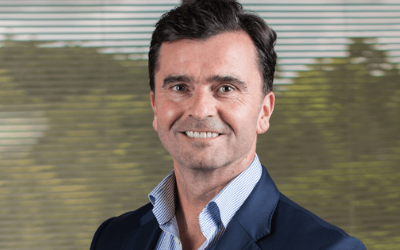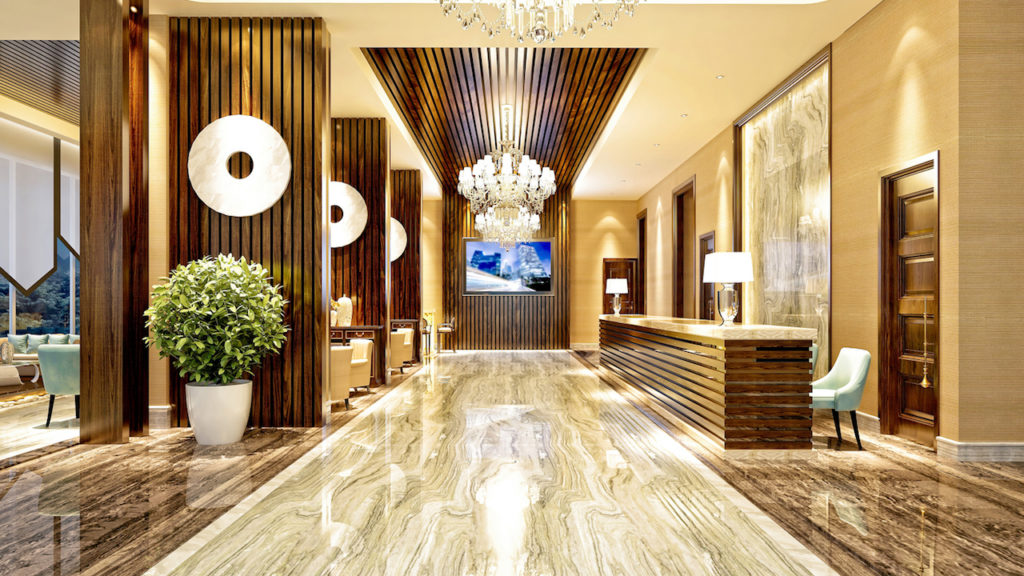David Anderson is an established hospitality leader who has recently been named as Interstate Hotels & Resorts’ new Executive Vice President – International.
Over the last 25 years, David, who is originally from St Andrews in Scotland, has travelled the world with various leadership positions for hotel groups. David has extensive experience in luxury resorts and midscale hotel portfolios throughout Europe, the UK, and the Indian Ocean. He has operated in both branded and independent properties and has managed companies within multiple structures including owned and operated, hotel management agreements and franchises.
His role at Interstate Hotels & Resorts follows his three years as CEO of Sun Resorts, where he was responsible for 3,500 employees on the idyllic island of Mauritius. His previous roles also include Managing Director of Dolce Hotels, Regional Vice President for Wyndham Hotels & Resorts and Vice President for the Louvre Hotel Group in Paris.
At Hospitality People Group, we have known David for many years, having helped place him in his roles at both Dolce Hotels and at Interstate Hotels & Resorts. We were delighted that he agreed to sit down with us for a short Q & A to share his thoughts on his experience of the hospitality industry.
What inspired you to follow a career in hospitality?
There is so much about hospitality that makes it an attractive and rewarding sector. I’ve always been passionate about people and fundamentally that’s what drove me to build my career in this industry.
As a French/English speaker, hospitality appealed because it offers rich opportunities to travel and I have been so lucky to enjoy many incredible cultural experiences through my work across different hotels globally. Indeed, it’s been a great way for me to see the world and gain extensive experiences from midscale hotel portfolios throughout Europe and the UK, to luxury resorts in the Indian Ocean.
What advice would you give to someone who is just starting (or considering) their career in the industry?
I would encourage those considering coming into this industry to build their story from day one. Getting best in class experience working with world-class brands and hotels that enjoy an exceptional reputation will make you a very attractive proposition to a future employer. Being able to continually challenge yourself outside of your usual comfort zone is also important, as is having a willingness to move, both in terms of location and departments. Hospitality offers you the ability to develop your career in many areas including Operations, Sales, Finance, HR, IT or even hotel development.
It’s about building a narrative, getting technically competent and mastering each role you do, and as your career develops, you will develop natural leadership capabilities and you’ll find a wider variety of options opening up to you whether that be as a GM, regional manager, in a corporate function or even as CEO!
I look back on my history now and am grateful for every part of my career story, every experience has helped me to get where I am today.
The hospitality industry is on a huge recruitment drive at the moment and retention of employees has been a major challenge. What do you think are the most important things to do when leading and inspiring a team?
It’s true that, for a variety of reasons, recruitment is one of the biggest challenges our industry faces, that’s why I believe in the value of developing strong relationships with recruitment firms and head hunters. But I always go back to what inspired me to get into hospitality and it was people and that is still the same to this day – we just have to be more resourceful and creative in our approach.
I believe in building a strong culture of collaboration – two-way communication is key as is everyone pulling in the same direction. Investing in our staff so they can develop their careers within Interstate Hotel and Resorts is really important to me, as is making sure we recognise and reward their effort and achievement by celebrating successes across the team.
As part of this though, I want all our team members to feel empowered to make decisions so they can give our guests the most memorable and positive experiences when they visit our hotels. I hope this inspires them to do the very best they can, knowing they are supported and valued.
What are the biggest opportunities in the hospitality industry as it recovers from the pandemic?
Here at Interstate Hotels and Resorts, we are finishing 2021 in a strong position with a larger portfolio than ever before, new hotels opened and plenty more in the pipeline. This is really reassuring as it shows that the hospitality industry is finding its feet and, as a business, that we can quickly adapt to a changing world.
I expect that the need to continually identify change and respond accordingly will remain, and being as agile as possible is vital. It’s clear that the pandemic has put everything into question and allowed us to look at doing things differently which is an opportunity in itself. We all have a responsibility to continually improve processes and procedures, optimise technology and make the guest journey as streamlined as possible. These are key focuses for us in the year ahead.
For me personally, presenting the benefits of third-party management and getting even closer with our owners and our brands is also an area to develop. I want to demonstrate how that human touch and being there for one another and taking a thoughtful and caring approach to what we do is beneficial for all parties.
With COP26 having just taken place in Glasgow, in terms of sustainability, what do you think are the biggest opportunities for the Hospitality Industry?
Sustainability is a top priority for the entire world, not just the hospitality industry and one that we are taking very seriously. As a company, we must take ownership and responsibility for the measurement, delivery and communication of carbon targets across our business.
Working across different brands and with a variety of professional bodies gives us a unique perspective that benefits our teams and owners. We need to continue to learn quickly, adopting changes to procedures and guest messaging to make an impact that aligns with a positive guest experience.
Taking ownership and responsibility and making employees feel proud that together we are tackling some of these issues in an accountable way gives me hope for the future.
The adoption of technology in hospitality has been forced to leap forward in the last two years. Moving forward, how do you think technology can be best utilised in the industry?
The rate of growth in this area over the last few years is incredible and it’s exciting to see what more is to come. We want to optimise technology wherever we can to provide our guests with a seamless experience and customer journey from beginning to end, whilst retaining the purest sense of the word ‘hospitality’.
Whether this is using concierge platforms to communicate with guests during their stay or looking at direct communication options with reception teams and the use of apps to provide more targeted guest communication and offers.
This is also a huge development area within the meetings and events space. Here, we are working with key strategic partners to support meeting planners with smart and effective distribution solutions, offering options to meet virtually where meeting in person isn’t possible, and working with owners to ensure they have the right tech to meet current event planners’ requirements.
Thank you to David for sharing his inspirational views on the hospitality industry. To discuss how we can support your businesses with our full suite of human capital services to help grow your hospitality business, please call HPG Advisory Services on +44 20 8600 1160 or email Dan Akhtar on dan@hpgsearch.com







